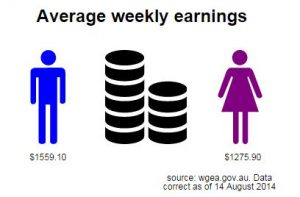 Among some of the quick things that will get approved at Tuesday’s Miami-Dade Commission meeting is an item pushing for equal pay for women.
Among some of the quick things that will get approved at Tuesday’s Miami-Dade Commission meeting is an item pushing for equal pay for women.
It’s cleverly disguised as a local equivalent of the United Nations Convention to End Discrimination Against Women (CEDAW) and a proposal to simply study the disparities in pay and pain if you’re a woman. But the end game is equal pay legislation or policies. Just watch.
Commissioner Daniella Levine Cava is sponsoring the ordinance, which calls for the Miami-Dade County Commission on Women to work with the commission’s internal auditor to report annually on the status of women and girls in three critical areas: economic development, health and education.
First they will assess the state of women in these three areas and then make policy recommendations based on the findings.
CEDAW was adopted by the United Nations in 1979, but the U.S. is still one of the countries that hasn’t ratified it yet.  Several cities and municipalities have “adopted it to uphold the principles,” Levine Cava said. And she wants Miami-Dade to be next.
Several cities and municipalities have “adopted it to uphold the principles,” Levine Cava said. And she wants Miami-Dade to be next.
“It isn’t because we have a specific example [of discrimination] but we know that in the area of pay equity and violence and education, there are definitely gaps to close,” Levine Cava told Ladra. “We are calling for studies to see where the gaps can be closed and seeing how we can head in that direction.
“Overall, we are looking for objective, empirical data to better evaluate our local public policy, in particular in the areas of pay equity and violence against women,” Levine Cava said. “The county has some policies. We want to see if they are being followed, if they are working and whether we need to do more.”
Women make 77 cents to the dollar compared to men. That goes down for 64 cents for black women and 56 cents for Hispanic women. Que que? How is knowing two languages worth less?
64 cents for black women and 56 cents for Hispanic women. Que que? How is knowing two languages worth less?
And Miami-Dade, in addition to being one of the world’s human trafficking centers, has a high infant mortality rate, higher than the national average. “That means we don’t do as well as we should with maternal and child health,” Levine Cava said.
The objective is to get good data and pass policies that address the disparities, she said, adding that they are going to look in house as well. “We are going to look at the county’s own pay roll.”
There is no immediate cost to the county because there is no outside contracting, Levine Cava said. The county’s own staff and the Commission on the Status of Women would compile the data and come up with the recommendations that might later have to be funded.
That’s probably why the ordinance has so many co-sponsors — Commissioners Rebeca Sosa, Sally Heyman and Bruno Barreiro.
But once those recommendations come, I guess you could say we might expect the county payroll to increase anywhere from 33 to 44 percent.

